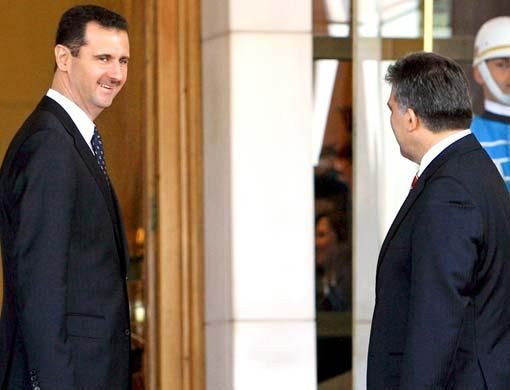Ankara/Paris: Baghdad is "absolutely determined" to end the presence of Kurdish rebels in northern Iraq, Iraqi Prime Minister Nouri Al Maliki told his Turkish counterpart Recep Tayyip Erdogan over the telephone yesterday, the Anatolia news agency reported.
Al Maliki said his government "is absolutely determined to end the activities and the presence of the PKK terrorist organisation on Iraqi territory," the semi-official agency said, quoting unidentified sources.
He said he had given orders to the autonomous Kurdish administration in northern Iraq to take action against the Kurdistan Workers' Party (PKK), listed as a terrorist group by Ankara and much of the international community, Anatolia reported.
Al Maliki asked for "a new opportunity" to resolve the issue through diplomatic means and proposed talks, according to Anatolia. Erdogan responded that he was willing to meet Iraqi officials to discuss the issue, but warned that Ankara cannot tolerate "further waste of time," the agency reported.
Talabani's assurance
In Paris, Iraqi President Jalal Talabani urged Turkey not to launch an attack against Kurdish rebels in Iraq and said the government in Baghdad was ready to work with Ankara and Washington to resolve the problem.
"We hope the wisdom of our friend Prime Minister Erdogan will be so active that there will be no military intervention," Talabani, speaking in English, told reporters after meeting French President Nicolas Sarkozy.
French Foreign Minister Bernard Kouchner, who also met Talabani said France was firmly opposed to any outside intervention. "We hope that the current difference between Iraq and Turkey is resolved through diplomacy," he said.
Talabani said Iraq wanted to find a peaceful solution to the crisis. "We are ready to cooperate with the Turkish authorities and we are for activating the committee formed by America, Turkey and Iraq to solve this problem."
He added that Iraq was opposed to what Kurdistan Workers Party (PKK) insurgents were doing and called on them to lay down their arms.
Meanwhile, the United States and other Western allies, as well as Baghdad, urged Turkey to refrain from military action.
Nato spokesman James Appathurai said the alliance viewed the PKK as a terrorist group. But he said Ankara had not made any request for Nato to invoke a clause in its treaty calling on nations to come to the aid of an ally under attack, nor had it requested military help.
The European Commission reiterated it hoped Turkey would respect Iraq's territorial integrity.
Facts on Kurdistan Workers Party
Abdullah Ocalan founded the party in 1974 and it was formally named the Kurdistan Workers Party (PKK) in 1978, a Marxist-Leninist insurgent group fighting for an independent Kurdish state.
- It earned a reputation for ruthlessness by killing members of rival groups, Kurdish "aga" landlords and pro-government tribesmen.
Fight for a homeland
- The PKK took up arms against Turkey in 1984 with the aim of creating an ethnic homeland in the southeast. More than 30,000 have been killed in the conflict.
--Ocalan was captured and sentenced to death by a Turkish court in 1999, but the sentence was reduced to life imprisonment in October 2002 after Turkey abolished the death penalty.
- Fighting dwindled after Ocalan's capture and it also led to a ceasefire and the withdrawal of rebel fighters from Turkey.
A political struggle
--Ocalan, after his capture, emphasised the importance of winning rights for the Kurds through political rather than armed struggle. That encouraged the rebels to establish a new political wing known as KONGRA-GEL in November 2003.
Violence again
--In June 2004, the PKK announced the end of its ceasefire and told investors and tourists to stay away from Turkey.
--Some 3,000 PKK fighters are based in northern Iraq and launch attacks on security and civilian targets in Turkish territory.












